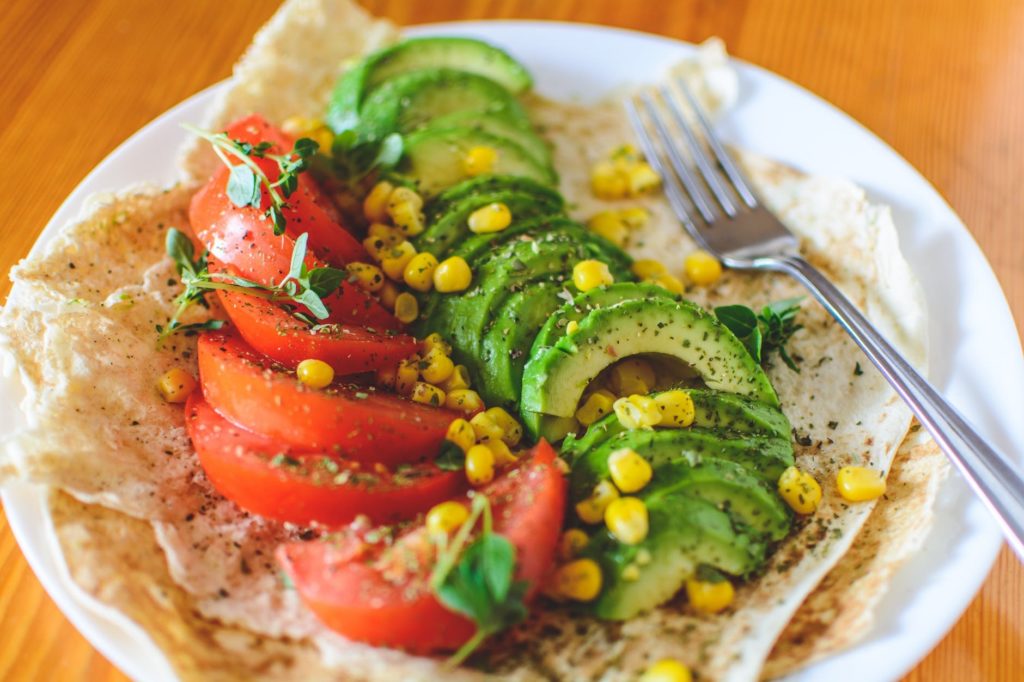Studies have shown the numerous health benefits of reducing meat consumption and eating more greens. Eating more plants, such as fruits and veggies, can reduce the risk of developing chronic health conditions like heart disease, diabetes, and colon cancer. Because meat production contributes to the harmful effects of climate change, switching to a low-meat or meat-free diet is better for our environment, too.
That’s where a plant-based diet comes in. Plant-based diets, although sometimes confused with veganism and vegetarianism, are more flexible. Because there’s no ethical rules for what you must eat on a plant-based diet, many people like to think of it as more of a lifestyle than a diet. Plant-based diets let you can customize your lifestyle by handpicking what to eat based on your preferences and budget. Here are some tips for getting started without breaking the bank.
Less Meat, More Plants
Typically, a plant-based lifestyle involves mindfully eating more greens, like fruits and vegetables, and trying to limit your consumption of meat, eggs, dairy, gelatin, and other animal-based products. Of course, that doesn’t mean you have to cut out everything at the same time. Instead, you might have better luck slowly avoiding one type of food at a time. For instance, start by eliminating foods you eat less frequently and add more from there.
Although you still do have the flexibility to eat many of your favorite foods, you might occasionally need to eliminate one of your faves, whether for health reasons or environmental reasons. For instance, milk, eggs, fish, and shellfish make up four of the eight leading food allergies. Luckily, there are plant-based alternatives for each of these products, including almond milk, egg and dairy substitutes, and even fishless seafood products.
Grocery Shopping
You might be surprised at the variety of plant-based products you can find in your local area, once you know where to look. Many stores have entire aisles devoted to plant-based or veg-friendly food choices. If you’re having trouble finding what you’re looking for, try a major retailer like Walmart or Target. These companies offer plenty of organic, healthful options. Start with the whole foods or organic aisle and ask an employee if you need help finding anything.
If you’re on a budget, you may not always be able to afford to purchase products from the organic, vegan, or whole foods aisles at the grocery store. Fortunately, the major retailers are also typically able to offer lower prices than smaller stores. That’s great news for your bank account! To save even more money, start by searching the web for Walmart promos and Target coupon codes before you shop.
Get Creative
A meat-free meal doesn’t have to be bland. Get creative with spices, seasonings, ingredients, and recipes. Dr. Michael Gregor, M.D., one of the leading plant-based nutrition authorities, says his daily meals include:
- Green smoothies: parsley, mint, mango, strawberry, white tea, lemon, ginger, and flax
- Breakfast: 8-grain cereal, toasted walnuts, seeds, dried fruit, barberries, and cinnamon
- Lunch: eating leftovers from the day before saves time, effort, and money
- Dinner: beans, green veggies, hot sauce, salad, and seasonings
- Snack #1: bake purple sweet potato fries, then encrust with fresh rosemary, garlic, and chickpea flour
- Snack #2: combine refried beans, salsa, hot sauce, sautéed onions, and mushrooms, then wrap with steamed collard greens.
The world is certainly seeing a shift toward eating plant-based foods. For the past several years, food manufacturers have been scrambling to meet the increased demand for low-meat, plant-based, and vegan or vegetarian dietary choices. If you think a plant-based diet might be in your future, it’s possible to make the switch without breaking the bank. Completely changing your lifestyle doesn’t have to be daunting or expensive. Take small steps, eliminating one food at a time, and look for coupons and sales when shopping. Over time, you might be surprised at how delicious plant-based foods are and how much better you feel when eating them.
Veg Out: Budget-Friendly Ways to Adopt a Plant-Based Diet was written by Jason Lewis, Personal Trainer at Strongwell.org.
If you are ready to adopt a plant-based diet, try a 14-day vegan challenge plan or get started with a Nutrition Evaluation!



